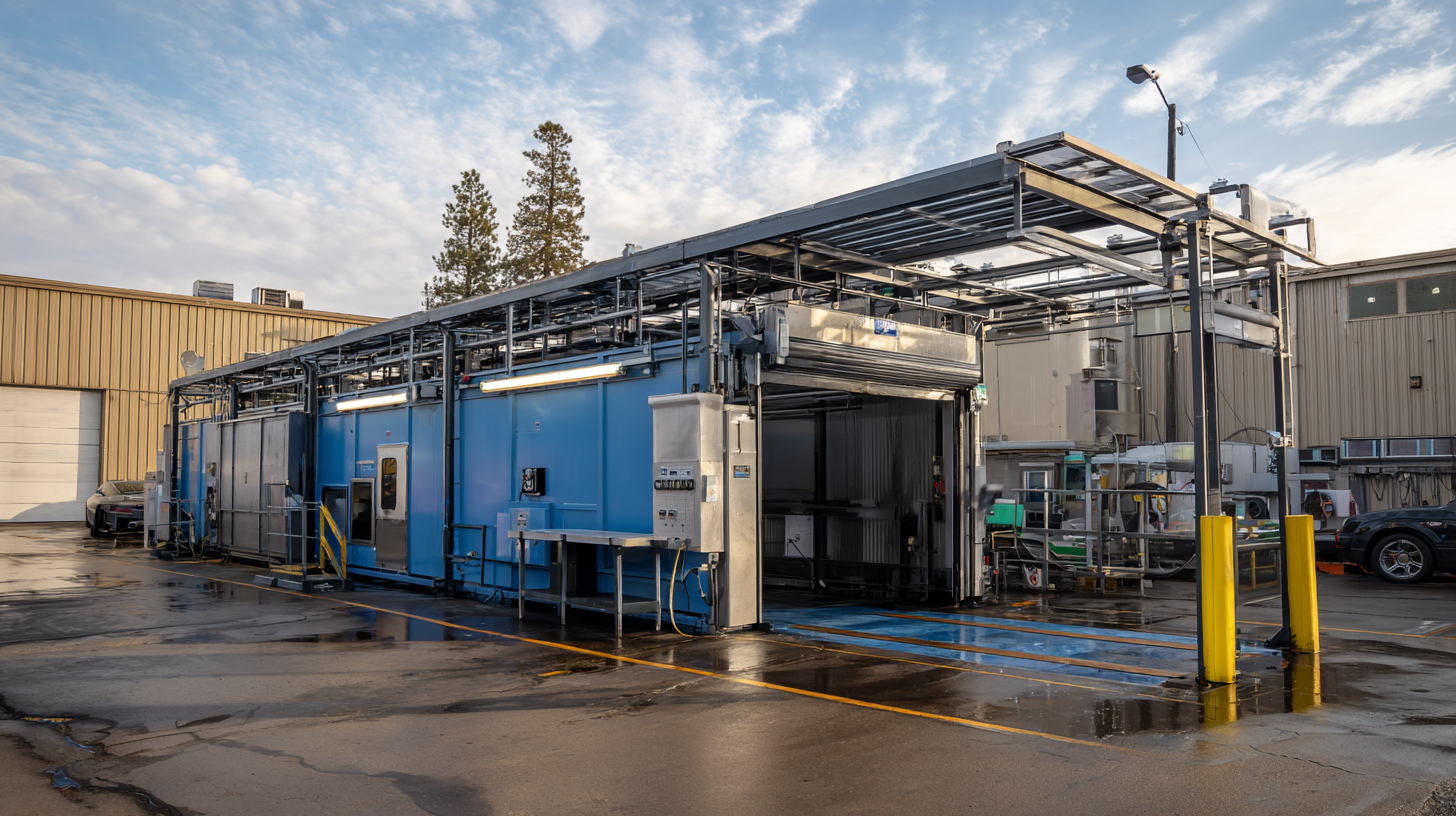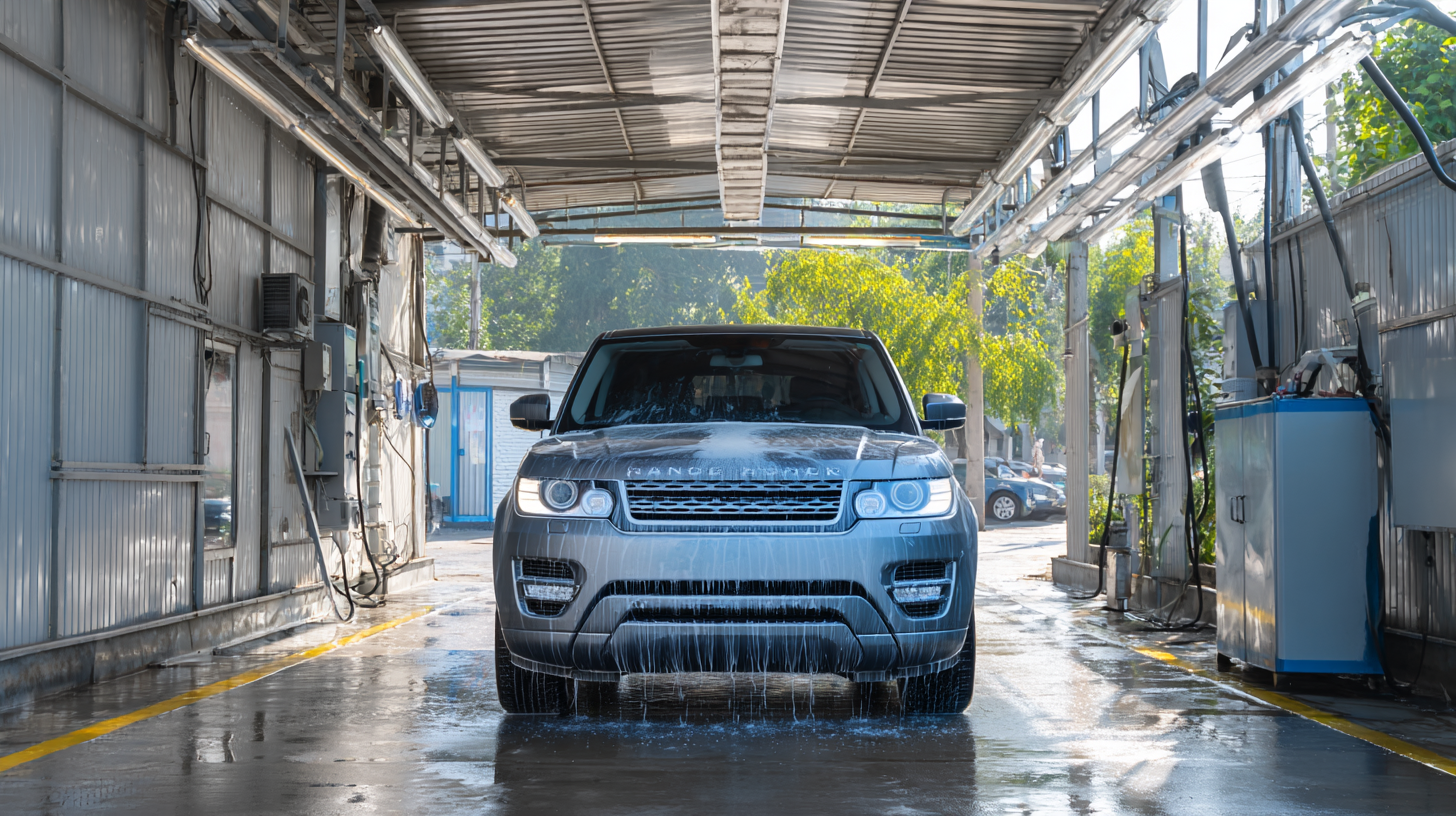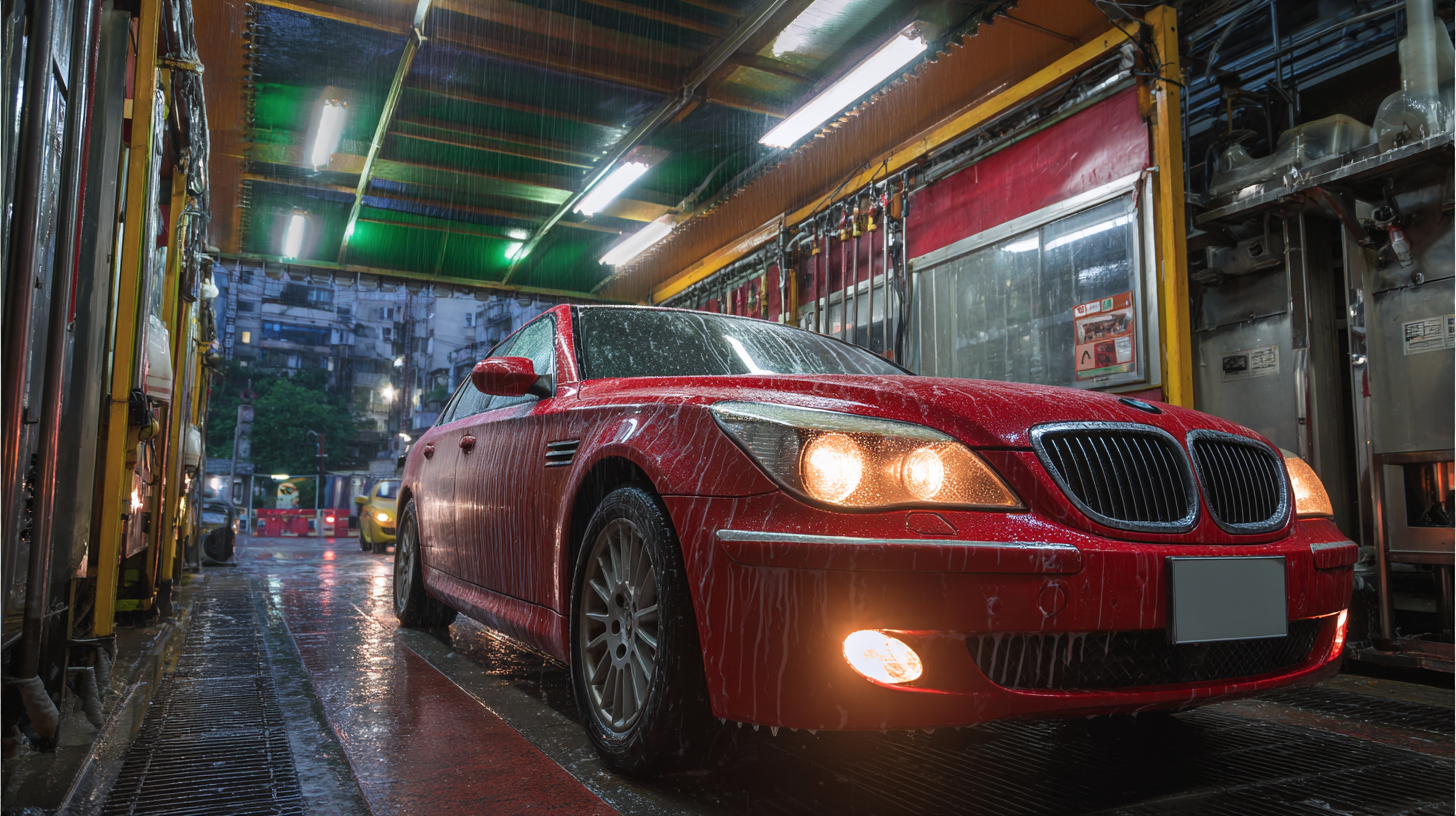How to Choose the Right Industrial Car Wash Machine for Your Business Needs
Choosing the right Industrial Car Wash Machine is crucial for businesses aiming to enhance their operational efficiency and service quality in the increasingly competitive automotive care market. According to a recent report by IBISWorld, the car wash industry generated approximately $11 billion in revenue in 2022, with annual growth projected at 3.4% over the next five years. As customer demands evolve and environmental regulations tighten, selecting an appropriate industrial car wash machine can significantly impact both profitability and customer satisfaction. With myriad options available—from touchless systems to traditional methods—understanding specific business needs, expected volume, and water usage efficiency becomes essential. By making an informed choice, businesses can not only optimize their washing processes but also improve environmental sustainability and long-term operational viability.

Understanding Different Types of Industrial Car Wash Machines Available on the Market
When choosing the right industrial car wash machine, understanding the different types available on the market is crucial. The primary categories include gantry systems, tunnel wash systems, and self-service car washes. According to a report by Grand View Research, the global car wash services market was valued at approximately $13.1 billion in 2020 and is expected to grow, indicating a rising demand for advanced washing technologies.
Gantry systems, which utilize overhead equipment to clean vehicles, are popular for their space efficiency and noteworthy cleaning capabilities. They generally serve a high volume of vehicles, making them ideal for businesses looking to maximize throughput.
Tunnel wash systems, on the other hand, offer a continuous cleaning process as vehicles travel through a series of automated stations. These machines can clean multiple vehicles in minutes, significantly boosting operational productivity. Based on statistics from IBISWorld, the car wash industry has seen a 3.3% annual growth rate, underscoring the importance of investing in efficient technology.
Additionally, self-service car washes have gained popularity for their lower operational costs and convenience, appealing to customers who prefer a hands-on approach. Understanding these types equips business owners to make informed decisions aligned with their operational goals and market trends.
Assessing Your Business Volume and Choosing the Right Capacity for Your Car Wash Needs
When selecting an industrial car wash machine, the first step is to assess your business volume.
Understanding the number of vehicles you service daily will help you determine the right capacity for your needs.
If your operation is high-volume, a more powerful and efficient machine will be necessary to maintain productivity.
Conversely, if you service fewer vehicles, a lower-capacity model may suffice, allowing for cost efficiency without compromising on quality.
Tips:
Evaluate the peak days for your business to gauge your maximum capacity requirements.
Consider investing in machines that offer scalability, allowing you to expand or adjust based on fluctuating demands.
Additionally, think about the specific types of vehicles you plan to wash.
Different machines cater to various vehicle sizes, from compact cars to large trucks.
Ensuring your equipment is versatile enough to handle your typical clientele ensures a smoother operation.
Tips:
Regularly review your business volume every few months.
This ongoing assessment can help you identify trends and make informed decisions about upgrading or scaling your equipment.
Evaluating Technology Features: Manual vs. Automated Systems for Efficiency
When selecting an industrial car wash machine, the technology features play a crucial role in determining efficiency and effectiveness. Manual systems typically require more labor input, which can lead to variability in service quality and increased operational costs. These systems offer a hands-on approach, allowing operators to focus on areas that may need special attention. However, the labor-intensive nature of manual washing can be less scalable and more susceptible to human error, which may affect customer satisfaction and repeat business.
In contrast, automated systems leverage advanced technology to streamline the washing process. These machines often incorporate sensors, programmable settings, and high-pressure jets, which enhance cleaning efficiency and consistency. Automated systems can operate with minimal human intervention, reducing labor costs and accelerating the washing process. Additionally, the integration of software allows for performance monitoring and data analytics, enabling businesses to optimize operations and improve workflow. Ultimately, choosing between manual and automated systems will depend on a business's scale, budget, and operational goals, making it essential to evaluate the specific technology features that align with their needs.

Calculating Operating Costs: Energy Consumption and Maintenance Considerations
 When choosing the right industrial car wash machine, understanding the operating costs is crucial, particularly in the context of rising energy prices and sustainability goals. Energy consumption directly affects both the operating expenses and overall efficiency of the car wash. By selecting models known for energy efficiency, businesses can mitigate costs while contributing to decarbonization efforts.
When choosing the right industrial car wash machine, understanding the operating costs is crucial, particularly in the context of rising energy prices and sustainability goals. Energy consumption directly affects both the operating expenses and overall efficiency of the car wash. By selecting models known for energy efficiency, businesses can mitigate costs while contributing to decarbonization efforts.
Tips: To assess energy consumption, look for machines that provide detailed energy usage reports. This data can help you identify peak usage times and adjust operations accordingly. Additionally, consider implementing solar or hybrid energy systems to further minimize energy costs.
Maintenance considerations also play a key role in the long-term viability of car wash machines. Regular maintenance not only prolongs the life of the equipment but also ensures optimal energy performance. Investing in machines with lower maintenance needs can significantly reduce operational downtime and repair costs.
Tips: Establish a routine maintenance schedule and look for machines designed with easy-to-access parts, which can simplify repairs and reduce labor costs. Additionally, consider the availability of spare parts to avoid extended downtime in case of repairs.
Analyzing Customer Preferences and Location Impact on Equipment Selection
When selecting the right industrial car wash machine, customer preferences play a pivotal role in shaping your decision. Understanding the specific needs of your clientele—such as the types of vehicles they commonly drive and their desired level of service—can significantly influence the features you prioritize in your equipment. For instance, customers in a commercial fleet sector may prefer heavy-duty machines capable of handling larger vehicles, while individual customers might lean towards versatile systems that accommodate various car sizes and styles.
The location of your car wash also impacts the equipment selection process. Areas with higher traffic volumes may require faster, more efficient machines to minimize wait times, thereby enhancing customer satisfaction. Conversely, a facility located in quieter neighborhoods might benefit from machines designed for detailed cleaning and a more personalized service approach. Additionally, regional preferences regarding environmental practices could necessitate eco-friendly options or water recycling systems. Thus, evaluating both customer preferences and geographical influences is crucial in determining the ideal industrial car wash solution for your business.
Industrial Car Wash Machine Preferences by Location
Related Posts
-

Top Strategies for Boosting Profits with Car Wash Machines for Business
-

How to Choose the Best Car Wash Machine for Your Business Needs
-

How to Identify Quality Manufacturers for the Best Industrial Car Wash Machine
-

Top Tips for Selecting the Best Car Wash Machine Manufacturer and Equipment Comparison Guide
-

Top Strategies for Enhancing Efficiency in Machine Car Wash Operations
-

Challenges Faced by Users of Automatic Car Washing Machines